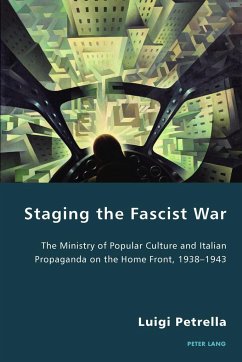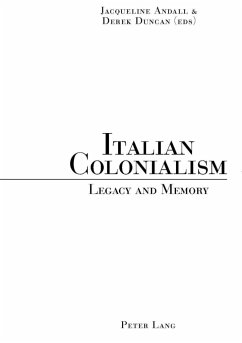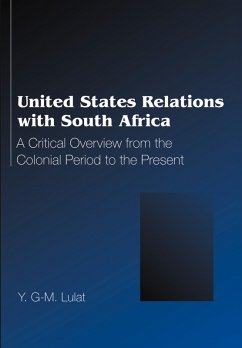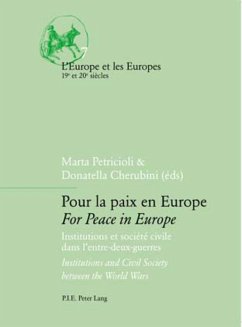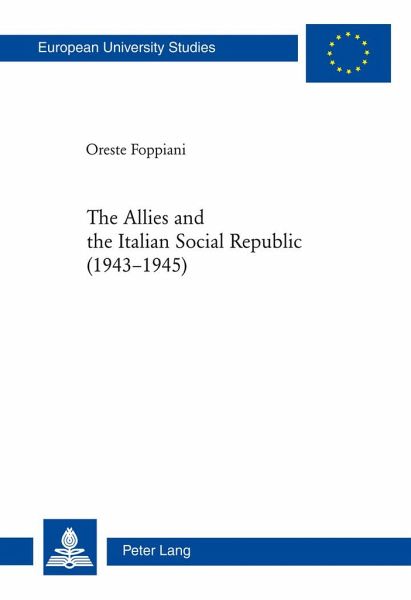
The Allies and the Italian Social Republic (1943-1945)
Anglo-American Relations with, Perceptions of, and Judgments on the RSI during the Italian Civil War
Versandkostenfrei!
Versandfertig in 6-10 Tagen
109,85 €
inkl. MwSt.

PAYBACK Punkte
0 °P sammeln!
Italy's change of camp during World War II marked a turning point in the lives of all Italians, causing the «death of the fatherland» and the collapse of a two-decade long, dictatorial régime. Also, this switch triggered a bloody civil war, which increasingly divided an already fragmented country into two separate territories: the Salò Republic (RSI), occupied and controlled by the Germans, and the Southern Kingdom, occupied and administered by the Anglo-Americans. This book is about the British and American relations with, perceptions of, and judgments on the RSI. The period examined runs...
Italy's change of camp during World War II marked a turning point in the lives of all Italians, causing the «death of the fatherland» and the collapse of a two-decade long, dictatorial régime. Also, this switch triggered a bloody civil war, which increasingly divided an already fragmented country into two separate territories: the Salò Republic (RSI), occupied and controlled by the Germans, and the Southern Kingdom, occupied and administered by the Anglo-Americans.
This book is about the British and American relations with, perceptions of, and judgments on the RSI. The period examined runs from September 1943 through April 1945 with some incursions into the immediate post-war period, when the Allied Control Commission and, after the fall of 1944, the Allied Commission and the Advisory Council for Italy, were still functioning. During this time frame Anglo-American troops were still occupying Italian soil, and some republican fascists remained in hiding, waiting to appear again on the political scene as turncoats, diehard fascists or «gladiators». While the first part of the monograph deals specifically with the relations between the latter and the Allies, the second deals with American and British journalists and/or intellectuals who wrote about or worked for the RSI. The last section is dedicated to the different categories of post-9/8 Prisoners of War.
This book is about the British and American relations with, perceptions of, and judgments on the RSI. The period examined runs from September 1943 through April 1945 with some incursions into the immediate post-war period, when the Allied Control Commission and, after the fall of 1944, the Allied Commission and the Advisory Council for Italy, were still functioning. During this time frame Anglo-American troops were still occupying Italian soil, and some republican fascists remained in hiding, waiting to appear again on the political scene as turncoats, diehard fascists or «gladiators». While the first part of the monograph deals specifically with the relations between the latter and the Allies, the second deals with American and British journalists and/or intellectuals who wrote about or worked for the RSI. The last section is dedicated to the different categories of post-9/8 Prisoners of War.



